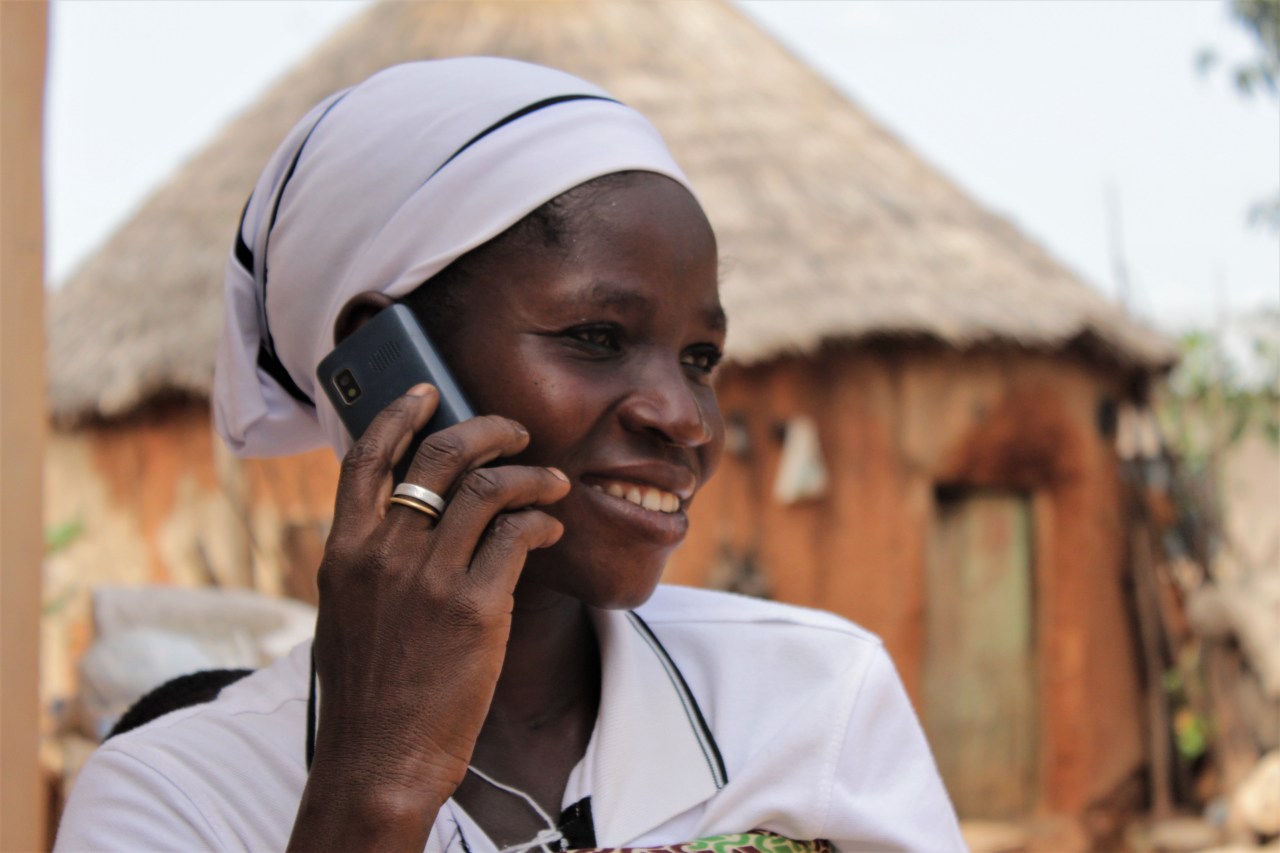Reaching the last mile amidst network challenges
Maternal mortality rates in Ghana has had a decline from 760 maternal deaths per 100,000 live births in 1990 to 319 per 100,000 live births in 2015, Although the country has made significant reduction over the years, it still could not meet the Millennium Development Goal (MDGs) of maternal mortality rate of 190 birth per 100,000 live birth, according to World Bank (Maternal Mortality Data, 2015)
The Ghana Health Service (GHS) 2016 Annual report indicates that complications such as hemorrhage and hypertensive disorders were the direct leading causes of maternal deaths. In addition, the WHO (Maternal Mortality Fact Sheet, 2016) emphasizes the lack of information, accessibility, and cultural practices as factors that prevent women from seeking quality health care services during pregnancy and childcare.

For Ghana to achieve the SDG goal 3 of reducing the maternal mortality ratio to less than 70 per 100,000 live births by 2030, there is a need to identify and bridge these barriers to accessing quality health care services by pregnant woman, partners and relatives in deprived communities at all levels of the health system.
The Technology for Maternal and Child Health (T4MCH) Project implemented in 33 health facilities, 9 districts and in 3 regions – Northern, Volta and Upper West Region of Ghana by Savana Signatures and Ghana Health Service with funding from Global Affairs Canada, promotes the use of ICT tools in communicating Maternal and Child Health (MCH) information to pregnant women and new mothers, their partner and relatives. The project seeks to contribute to the reduction of maternal and child mortalities in Ghana.
According to the latest figures released by the National Communication Authority (NCA) (Telecom Subscriptions, 2017), Ghana has recorded 35,780,667 million voice subscribers from the 6 main telecommunication networks – MTN, Vodafone, Airtel, Tigo, Expresso, and Glo – that operate in Ghana. Yet communities still find it challenging to access networks that deny them access to information in relation to issues of health, education, and security.
Through the use of mobile phones, pregnant women, new mothers, partners, and relatives are reached with MCH information to educate and especially clear some misconceptions surrounding pregnancy and childbirth. However, the fruition of reaching beneficiaries with MCH information largely depends on the availability of telecommunication network services in these communities, but most find it difficult in establishing network connectivity in these deprived areas.
Some project communities are facing network challenges that cut them off from receiving MCH messages through their mobile phones. On a normal day inhabitant’s in project communities like; Loggu and Bulenga in the Wa East district, Bawena in the North Gonja district, St. Mary Theresa Hospital and Kadjebi health center in the Kadjebi district, have to move to particular locations at particular times of the day in order to get network connectivity to either make or receive calls. Due to this, Bawena health center has not been able to register anyone to benefit from the T4MCH messaging platform to receive either the SMS or Voice calls. Considering these challenges, beneficiaries in these communities do not fully get to listen to these messages in a sequential manner and do not fully feel the impact because of the break in the delivery due to the network disconnection.
Likewise, Health staff expressed worry about trying to follow up on women who default ANC/PNC attendance but cannot reach them due to bad network connectivity. Also, it was revealed that health facilities are not easily accessible due to distance coupled with the lack of transportation systems and security. Since they do not have the luxury of using mobile phones because of a lack of network connectivity, they only visit the health facilities when they experience complications. For instance, in Laboanu, (a hard-to-reach community of about 500 inhabitants which is located in the rocky and hilly parts of Brewaniase) in the Nkwanta South District, inhabitants expressed fear about their safety on the route to access health care services at Brewaniase health center.
In addition, the sensitizations revealed that most people do not have adequate information on best practices in MCH which makes them susceptible to take wrong decisions pertaining to the health of pregnant women and new-borns. They still hold on to cultural practices which forbid the pregnant woman from early reporting for ANC and also giving birth at the health facility. These threaten the lives of mothers and babies.
In light of this, the T4MCH project is using innovative strategies to ensure that these hard-to-reach communities get the required information for lives to be saved. The project through Ghana Health Service is vigorously engaging such deprived communities through community knowledge sharing sessions where health staff use ICT tools such as; laptops, projectors, projector screens, mini public-address systems. Health staff continually develop, package, and deliver MCH information to pregnant women, new mothers, partners and relatives in these communities to bridge the information gap. This platform allows health staff and community members to interact, express their varied opinions, share their experiences and challenges and propose solutions to ensure better health outcomes for women and new-borns.
Savana Signatures is working to close the communication gap between the pregnant women, partners, and relatives at the last mile through health staff in the various health facilities to make pregnancy and childbirth a safe journey for women in Ghana and ensuring that we have healthy mothers, smiling babies.
By:
Rahana Mohammed
Project Officer, Technology for Maternal and Child Health Project
Savana Signatures.
